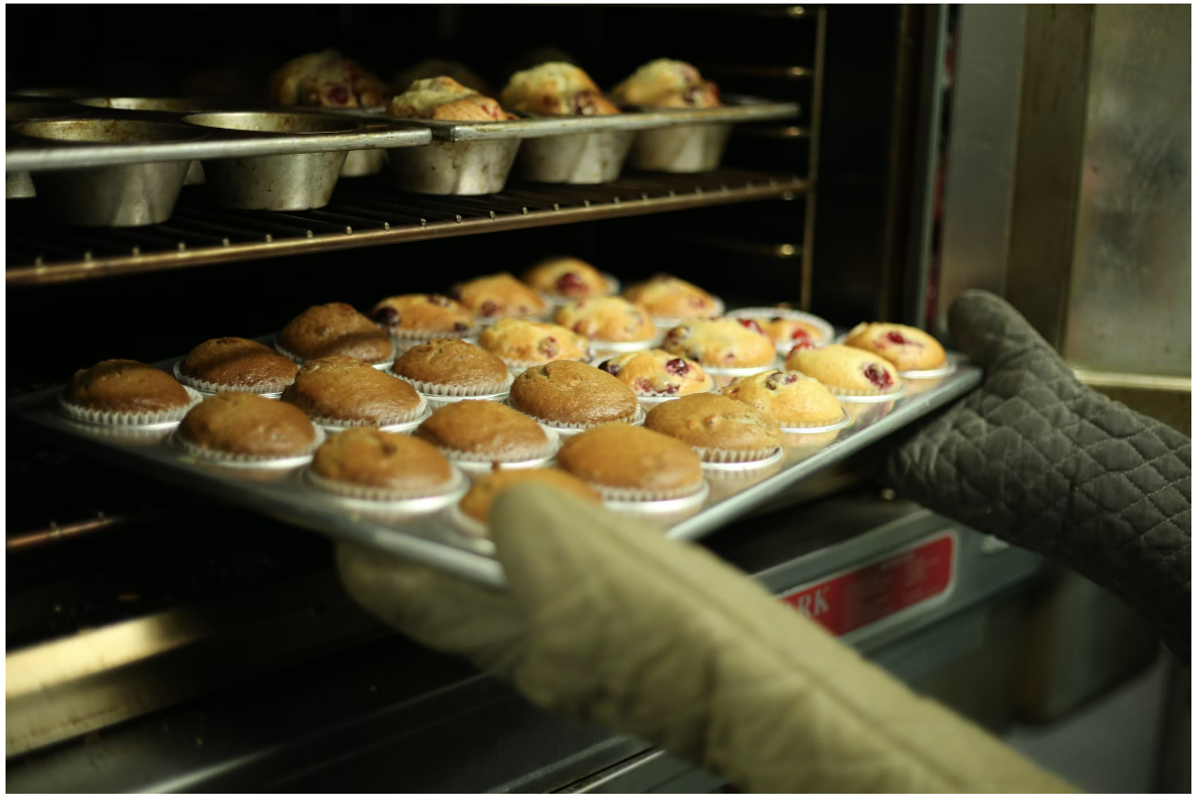Wellbeing

HEY YOUNG PEOPLE!
The Rainbow Ball is just around the corner, and we couldn't be more excited! As we begin planning this year's event, we want to hear from you. Your input is invaluable in making the Rainbow Ball a memorable experience for everyone. Please take a few moments to share your thoughts and ideas by completing the survey. Your feedback will help us create an event that truly shines.
https://www.surveymonkey.com/r/WXLN2LZ
INDEPENDENCE FOR TEENS
Going out independently: why it’s important for teenagers.
Going out to socialise, explore, learn and have fun safely without an adult is an important part of your teenage child’s journey towards independent adulthood. It’s good for teenagers to go out without an adult when they’re ready because it:
• helps them build life skills – for example, teenagers can practise navigating when they need to get from the train station to the library, solving problems when they work out what to do when the bus doesn’t come, or making decisions when they plan how to spend a day in town
• promotes good mental health – for example, independence can be good for teenage confidence, self-esteem and sense of belonging
• encourages physical activity – for example, teenagers who walk, bike or take public transport to school tend to be more physically active than teenagers who are driven
• builds community connections – for example, teenagers might say hello to people they know at the local shops.
A gradual approach to going out independently
Preparing children to go out independently starts well before the teenage years. Once teenagers are more independent and ready to go out on their own, you can keep building their independence through gradual steps, at a pace that’s comfortable for both of you. For example, your child might gradually progress through the following steps to go to the cinema with friends:
1. You drive your child to the cinema so that they can watch a movie with their friends. You pick up your child from the cinema straight after the movie.
2. Your child independently travels to the cinema with their friends. You pick up your child straight after the movie.
3. Your child independently travels to and from the cinema with friends. Your child must come home straight after the movie.
4. Your child independently travels to and from the cinema with friends. Your child doesn’t have to come home straight after the movie. They can spend an agreed amount of time at the shops with friends.
In this example, you gradually increase your child’s independence by adjusting how they travel, how long they stay out and where they go. And you could gradually increase how far your child travels. For example, your child could build up from going to the local cinema with friends to going into the city or to the nearest town to see a movie. You can adapt this example to other situations, like going shopping, going to the beach, going to the cricket or football, and so on.
Deciding whether teenagers are ready for more independence
As your child goes through the teenage years, there’ll be many times when your child wants more independence, or you want or need your child to have more. For example:
• You want your child to travel to and from netball practice on their own.
• Your child wants to go to the beach with friends.
• Your child wants to go jogging in your neighbourhood streets alone.
Here are some questions you and your child can discuss to decide whether your child is ready:
• Will your child be with someone you trust or will there be safe people nearby in case your child needs help – for example, a close friend, police officers or store employees?• Has your child practised doing this activity before with someone you trust – for example, with you, another family member or a friend?
• Is your child going somewhere that you consider safe?
• Does your child know what to do if they get lost?
• Can your child recognise safe and unsafe places and situations?
• Does your child reliably follow instructions or family rules?
• Can your child handle peer influence? For example, can your child say no if they’re pressured to try risky things, like smoking or binge-drinking?
• Does your child have a mobile phone to contact you on?
• Do you and your child feel comfortable and confident with your child having this next level of independence?
If you answered yes to most or all of these questions and your child feels comfortable and follows the rules, your child might be ready for more independence. But if you think your child needs to build more skills, they aren’t coping well or you’re not confident, your child might need more practice or you might move their independence back a step.
Negotiating independence with teenagers
As you monitor how well your child is going with independence and judge whether they need more or less, you’ll probably want to negotiate independence with your child. When you negotiate independence with your child, you send the message that you trust them to make good decisions when they’re out by themselves.For example, your child wants to go to an evening concert with friends, getting there and back by themselves. You’re OK about them going to the concert but you’re not sure about them travelling by themselves. Here’s how you could approach a negotiation in this situation:
• Actively listen to your child’s views without interrupting. For example, ‘Thanks for telling me about the band. I can see why it would be cool for you and your friends to go’.
• Express your own views and then ask your child to tell you more about theirs. For example, ‘I want you to be able to see the band with your friends, but I also need to know where you’ll be and that you’ll be safe. So tell me more about this concert’.
• Be clear about what is and isn’t negotiable. For example, ‘I’m OK about you going to the concert, and open to you getting there by yourselves. But I don’t want you to travel home on your own’.
• Think of a range of options. For example, ‘I can pick you up after the concert or your sister can meet with you and you can come home together.’
• Clearly state the decision that you and your child have agreed on. For example, ‘OK. You can go to the concert with your friends. You’ll text me to let me know you’ve arrived safely. I’ll pick you up at 11 pm’.
In this example, you and your child work together on a compromise that you’re both comfortable with. You can adapt this example to many situations, depending on how old your child is, what they want to do, and how this fits with your family values and rules.
Rules for teenagers going out independently
Rules can help you be clear about what is and isn’t negotiable when it comes to your child’s independence. Rules can also help your child understand your expectations and the limits you’ve set. But in the teenage years, it’s good to involve your child in making rules. This helps your child understand why the rules are important. It also means they’re more likely to see the rules as fair and stick to them. So you and your child might talk about general rules for:
• where your child can go – for example, your child is allowed to visit public places and friends’ houses within your town or within a certain area
• who your child needs to be with – for example, your child always needs to be with a friend
• how your child can travel – for example, your child needs to take public transport instead of walking the streets alone
• when your child needs to contact you and how – for example, your child needs to call you if there’s been a change of plans, they don’t feel safe or they feel unwell.
Once the rules are in place, apply them consistently – but assess them regularly as your child develops. If you monitor how well your child is handling their independence, this can help you know when the rules need adjusting.
How teenagers can stay safe when they go out independently: tips
There are some basic things your child can do to stay safe when they go out on their own:
• Pay attention to surroundings. Your child should stick to well-lit areas with plenty of people around. And they should take out their headphones and look around when crossing the street.
• Always let you know if there’s a change of plans – for example, if an event is taking longer than expected or if your child has to find another way home. If your child has a phone, they could call you. If your child doesn’t have a phone, they could ask a friend, relative or someone safe to call you.
• Never get into a car or go with someone they don’t know. And never get into a car with a driver who has been drinking alcohol or using drugs.
• Get help if they feel they’re in danger. For example, if your child thinks someone’s following them, they should go to a busy area and tell someone safe what’s happening.
When things go wrong: emergency plans for when teenagers are out
If your child is heading out by themselves, you and your child need to have a plan for what to do if there’s an emergency. Here are some ideas:
• Let your child know that they can call you at any time, in any condition, if they or their friends need your help.
• Make sure your child’s phone has your landline, mobile number, partner’s mobile number and other emergency contacts programmed into it.
• Give your contact details to one of your child’s friends.
• Make sure your child has enough money for an emergency taxi ride home.
• Have a coded message that your child could use if they want to come home but are embarrassed to ask in front of their friends. For example, they could send you a text message checking on a sick grandparent.
• Come up with some strategies to help your child say ‘no’ to alcohol or other drugs without losing face. For example, ‘I’d love to but I have to work in the morning’, or ‘I’ve got a big game tomorrow and need a clear head’.
• Give your child a personal alarm to carry if you’re concerned about their physical safety, or set up an emergency safety app on their phone.
#Article Credit - Raising Children Network
WINTER HOLIDAY ACTIVITY IDEAS!
The leaves have fallen from the trees and winter is well and truly here. Rather than hiding under the covers waiting for the sunshine to return, why not take advantage of the change in weather and create a winter bucket list filled with indoor and outdoor activities! Here are just a few ideas:
Get baking! Cook the day away making your favourite snacks and treats to help get you through the holidays. Better yet, treat the family to a three-course dinner prepared entirely by you!
Visit your local library Exploring your local library is a perfect all-weather activity, and best of all, it's free! Load up on books to read and you've scored yourself hours of entertainment! Over the holidays, some of our local libraries will often hold events for teens such as movie screenings.
Complete a puzzle: Studies have shown that jigsaw puzzles can help improve visual special reasoning, short-term memory and problem-solving skills.
Embrace the rain: If you’re experiencing cabin fever, why not pop on a raincoat and gumboots and head out into the mud! The world can be an incredible place in the rain, and you never know what fun you might find at your local park, the bush, or even your own backyard!
Get crafty! Courtesy of the internet, there are thousands of creative crafts on offer for you to attempt and master. Crafting can reduce stress and increase mood and self-confidence .. not to mention the pride and satisfaction you feel once you’ve created your very own masterpiece!
Host a games afternoon/night – Put together a party mix or some finger food, and dust off your favourite board games to challenge your family/friends.
Get moving in front of the TV! Many gaming programs and accessories are designed to encourage movement while you play. For example, a dance mat or Wii remote can get you moving and burning calories while playing your favourite games. Similarly, virtual reality games require full-body movement and can provide a great workout
Make over your bedroom – Tired of looking at the same four walls in your bedroom? There are so many great ways to revamp your own space .. most of which are simple changes that don’t cost a fortune.
Hold a karaoke competition! Did you know that there are many benefits to singing? Belting out a tune can stimulate your brain and relieve stress, allowing you to breathe better and improve your memory!
Science Experiments – there are literally oodles of simple science experiments and activities you can try at home (with parental authorisation of course!) Break out the white coats and start searching the internet for ideas.
Teach your dog some new tricks! Dog training and obedience can be a fun activity for both you and your canine friend! Dogs love learning and mental stimulation is just as important as physical exercise.
Movie night! Blankets, popcorn and comfy clothes .. what's not to love! Load up your favourite flicks for a family or friends movie marathon and settle in for some lounge-time bonding.
Work out: The miserable winter weather outside doesn’t have to stop you from physical exercise. There are plenty of ways to keep active indoors, including: jogging on the spot, lifting weights, yoga, planking, squats, push-ups, skipping, pilates, Zumba, or even jump on a treadmill or exercise bike (if you have one).
Update your music library: Crank up Spotify and listen to some old tunes you’ve not heard in a while or create some new playlists
Pamper time! Spoil yourself with a mini spa day at home with a variety of DIY beauty treatments. Try a nice manicure/pedicure, facial mask, experimenting with make-up, or even just a soak in the tub with a bath bomb.
Grow your own veggie garden: Even with minimal living space or no access to an outdoor yard, there are ways to establish your veggie or herb garden. Search the internet for design ideas and advice on which plants grow best during the winter months.



